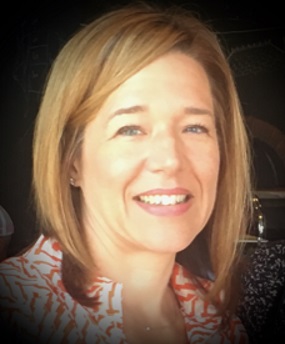![]() “Caution, Sir! I am eternally tired of hearing that word caution. It is nothing but the word of cowardice!” —John Brown
“Caution, Sir! I am eternally tired of hearing that word caution. It is nothing but the word of cowardice!” —John Brown
“The dogmas of the quiet past are inadequate to the stormy present. The occasion is piled high with difficulty, and we must rise with the occasion. As our case is new, so we must think anew and act anew.” —Abraham Lincoln
March on Washington, August 1963, 250,000 people. Women’s March, January 2017, 7 million people, worldwide. March for Our Lives, March 2018, 2 million people, nationwide.
To raise our voices. To be heard. It’s our go-to move when we want, when we need, change. We take to the streets. And we shout from the rooftops. Figuratively, and sometimes literally. We take to traditional media and to social media, to make ourselves heard. We talk to and sometimes shout at anyone who will listen. And the more oppressed, underserved and not privileged we are, the more we are justifiably outraged when those who are privileged try to speak for us. However, in times of tumult, it is easy to forget that there is more than one way to speak truth to power.

Sara Knizhnik
I am a gun violence prevention and criminal justice reform advocate. I speak up and out, daily, about the need for change. About the urgent need to end the easy accessibility of firearms by people who are not qualified to have them and to make our justice system more fair and equitable.
I do this because the policy of guns everywhere, all the time, for anyone who wants them exacerbates every social ill we have. I do this because the systemic racism and inequity in our justice system lies at the root of so much suffering. That suffering affects us all, whether we realize it or not. Because these problems are connected. Because we are all connected. And the solutions to those problems must be connected as well.
Every problem we want to solve, including the need for a more just system of jurisprudence, is far more lethal when a gun is involved. So I and thousands of other activists across the country keep speaking up. And we will not stop until we have ended the epidemic of gun violence on our streets, in our workplaces, in our places of worship, in our schools and in our homes.
Radicalism strengthens quiet advocacy
But, it’s not enough to speak up and to speak out. Loud calls for radical change are necessary, but they are not enough. If we want change, we must make our voices heard from without but also from within.
Malcolm X and Martin Luther King Jr., John Brown and Abraham Lincoln. They showed us how to make our voices heard for the purpose of making change. In his book, “The Zealot and the Emancipator,” author H.W. Brands describes the two different approaches to ending slavery taken by Lincoln and by Brown, a militant abolitionist who was determined to end the institution by any means necessary. Brands explains the way these two leaders used their voices to demand change. Taken together, they add up to a blueprint for change in our own time.
The Malcolm X and the John Brown approach was reform by way of radicalism: loud, justifiably angry calls for immediate action. The MLK and the Abraham Lincoln approaches were reform by way of advocacy: quiet, painfully slow but patient calls for legislative and cultural change. The object lesson for those of us who advocate today is that in both the 1860s and the 1960s, it took both approaches to bend the moral arc of the universe toward justice.
Today, another great era of upheaval is upon us. In my gun violence prevention and criminal justice reform advocacy, I work every day to help people who are survivors and victims of gun violence lift up their voices as they urgently call for change. As they shout from the rooftops about their pain and their loss and demand radical change from without.
And I stand by their side and do all I can to support them as they advocate for change from within. They walk the halls of state capitols and the halls of Congress. They tell their stories to lawmakers and influencers, people with the power to make change real. They relive their pain again and again and again. Because they are determined to bend that arc.
For more information on Youth Gun Violence Prevention, go to
► JJIE Resource Hub | Youth Gun Violence Prevention
But in my chosen cause, gun violence prevention, as in every other movement for social change, some people are not granted access or the ability to make change from within. All too often, people of privilege — and it’s a painful truth that they are almost always progressives of privilege — speak for the people who are most directly and dramatically impacted by the problems those very progressives are hoping to solve.
Malcolm strengthened Martin’s cause. And Martin strengthened Malcolm’s cause. John Brown strengthened Lincoln’s cause. And Lincoln strengthened John Brown’s cause. Their approaches were more than the sum of their parts.
As we do our part today to bend the moral arc still further, as we rise up and speak out and demand change from without and from within, we must follow their lead and recognize that both approaches are necessary and urgent. But we must also do what Brown and Lincoln and generations of privileged progressives did not do. We must make room in the room where it happens for leaders of marginalized communities to do the talking. It is their voices that must be heard in the halls of power.
The time has come for those of us who advocate and are of color to speak up not just from without but also from within. And it is time for those of us who advocate and are of privilege to stand by their side, provide the support and influence our privilege affords us and then shut up and let them speak for themselves. This is what real change looks like. And we should refuse to settle for anything less.
Sara Knizhnik is director of community engagement for the Newtown Action Alliance and a principal with Purpose Storytellers, a clever public affairs firm dedicated to helping nonprofits get to the next level of policy influence and thought leadership.

I find Ms. Knizhnik’s comments are most profound. I am the Executive Director of a Youth Diversion Program in Prince George’s County Md. Our Community Based non-profit (C-PAC) works very close with the Office of The States Attorney. We are in the process of moving “auto theft crimes” to the top of our list of priorities. As we now auto theft is a “gateway crime” we now see gun violence as a counterpart. The number of “car jackings” has increased by 180 per cent. We see more very young juveniles committing this offense, 12 to 14 year olds. Interviews with many of these young offenders who have been arrested reveal that if were not for the “gun” they may not have entertained the thought of committing the crime. I would like to know Ms. Knizhnik’s thoughts on this matter.
Phil Lee, Executive Director C-PAC